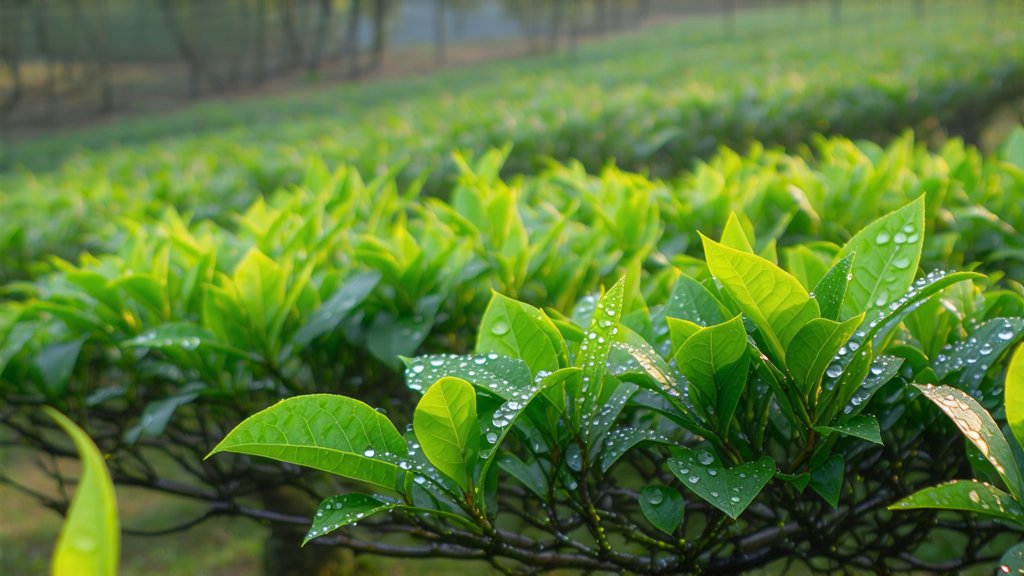
In the vast tapestry of Chinese tea culture, few threads are as delicate and enchanting as that woven by Bai Mu Dan, a distinguished member of the white tea family. Originating from the mountainous regions of Fujian Province in China, Bai Mu Dan, also known as "White Peony," stands as a testament to the harmony between nature's bounty and human artistry. This article embarks on a journey through the annals of Bai Mu Dan, exploring its historical roots, varieties, meticulous production process, and the nuanced art of its appreciation.
A Glimpse into History
The story of Bai Mu Dan dates back over 200 years, rooted deeply in the Zhenghe County of Fujian Province. Legend has it that during the Qing Dynasty, a tea farmer named Cai discovered this unique tea when his spring harvest was unexpectedly delayed by heavy rains. To salvage what he could, he plucked buds and leaves, which were then dried under the sun. The result was a tea unlike any other—delicate, fragrant, and possessing a subtle sweetness. Thus began the legacy of Bai Mu Dan, a name that translates to "White Peony," symbolizing purity and elegance.
Varieties within the Genre
Bai Mu Dan is not monolithic; it encompasses several grades, each offering distinct characteristics while sharing the common traits of its lineage. The most prized among them is the Gao Shan Bai Mu Dan, or "High Mountain White Peony," grown at elevations exceeding 600 meters. These teas boast a more complex flavor profile, often described as having a lingering sweetness and a hint of orchid fragrance. Lower grades, though equally delightful, may exhibit milder flavors and aromas, making them accessible yet still true to the essence of Bai Mu Dan.
The Art of Craftsmanship
The magic of Bai Mu Dan lies not only in its origin but also in the minimal intervention during its production, allowing nature's gifts to shine through. The process begins with the careful selection of tea leaves and buds, typically from the Da Bai and Shuixian cultivars. Unlike other teas that undergo rolling and oxidation, Bai Mu Dan is simply withered under the sun or in shade, a process that can take up to three days. This gentle withering reduces moisture content while preserving the natural enzymes responsible for the tea's unique flavor and aroma.
Following withering, the leaves undergo a light baking or sun drying, further fixing their character without applying heat that would alter their delicate nature. Finally, the tea is sorted, with buds separated from leaves to create different grades. The entire process respects the inherent qualities of the tea plant, resulting in a product that is pure, clean, and full of life.
Savoring the Symphony of Senses
To truly appreciate Bai Mu Dan is to engage all senses in a meditative ritual. Begin by observing the dry leaves, which resemble delicate silver needles interspersed with green veins. As hot water (around 80-85°C) cascades over them, watch the leaves unfurl gracefully, releasing a symphony of aromas—floral notes mingled with hints of honey and fresh hay.
The first sip reveals a silky texture, with a taste that balances sweetness and a slight vegetal edge, reminiscent of distant meadows kissed by morning dew. Subsequent infusions reveal layers of complexity, each unveiling new facets of the tea's personality. To fully experience Bai Mu Dan, one must adopt a mindful approach, savoring slowly, allowing the tea to whisper its stories to the palate and soul.
Health Benefits Beyond Compare
Beyond its sensory pleasures, Bai Mu Dan offers a trove of health benefits. Rich in antioxidants like polyphenols and flavonoids, Bai Mu Dan aids in combating free radicals, promoting cardiovascular health, and potentially reducing the risk of certain cancers. Its moderate caffeine content provides a gentle boost without the jitteriness associated with stronger teas or coffee. Additionally, studies suggest that regular consumption of Bai Mu Dan may support weight management, improve skin health, and even bolster the immune system.
Conclusion: A Timeless Elixir
Bai Mu Dan transcends being merely a beverage; it embodies a philosophy—a celebration of simplicity, purity, and the profound connection between humanity and nature. As you delve into the world of this ethereal white tea, remember that each cup is not just a drink but a journey through time, tradition, and terroir. Whether you are a seasoned tea connoisseur or a curious novice, Bai Mu Dan invites you to pause, reflect, and savor the quietude it brings, reminding us all of the beauty in life's simplest pleasures.